Leon County sheriff uses his lived experience to work toward a 'more perfect justice system'
It was 1968 when a 12-year-old Walt McNeil decided he wanted to be a police officer.
He was riding the bus to school at the beginning of the year with his Black friends when police pulled over the vehicle and stormed on board, striking some students with billy clubs and tear gas. Chicago was undergoing integration and the bus was transporting students to the white side of town.
Roughly a month after the incident, McNeil ran into a Black officer walking the streets and saw it as an opportunity to find out why he and his peers were treated the way they were.
“Why did the police come on our bus and do that?”
The police officer responded: “Boy, that’s just the way it is now. Maybe one day, you can do something about this.”
As McNeil told this story to a group of Fairview Middle School students more than 50 years later, he explained that from that moment he would do everything he could to become a police officer and “to be a better person than the persons I saw in those baby blue uniforms.”
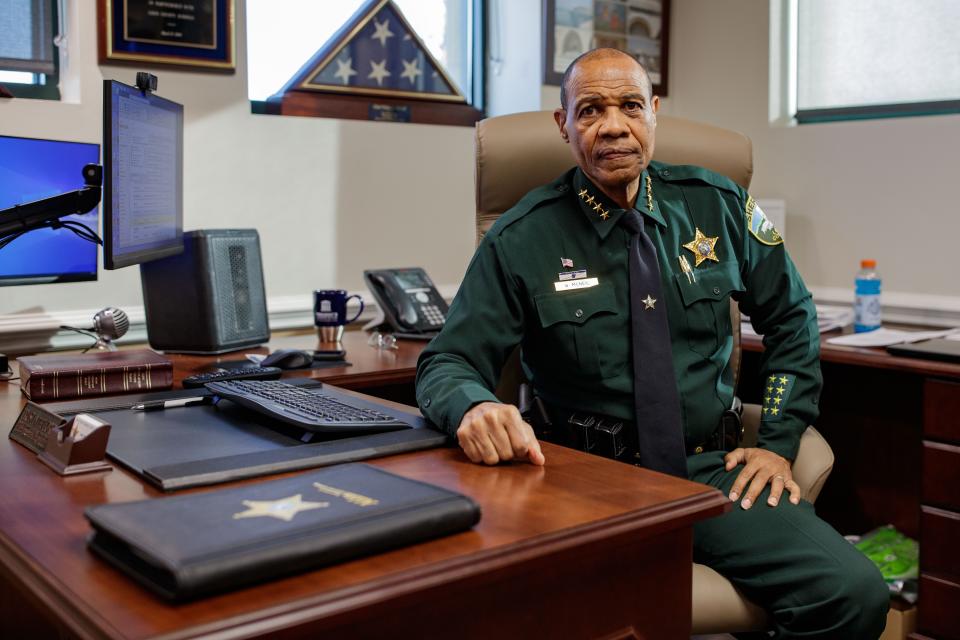
'I’m not going to turn you in'
McNeil began his career in law enforcement with the Tallahassee Police Department in 1979, at the age of 23.
In the early 1970s, Black TPD officers were only assigned to patrol in overwhelmingly Black Frenchtown. But by the time McNeil started, Black officers had been patrolling the entire city for about six years.
Personally, McNeil didn’t experience racism from fellow officers but he often saw white officers mistreat Black Tallahassee residents.
McNeil vividly recalled a specific time when he was in the booking room and a white officer was in the holding cell area, just a doorway away.
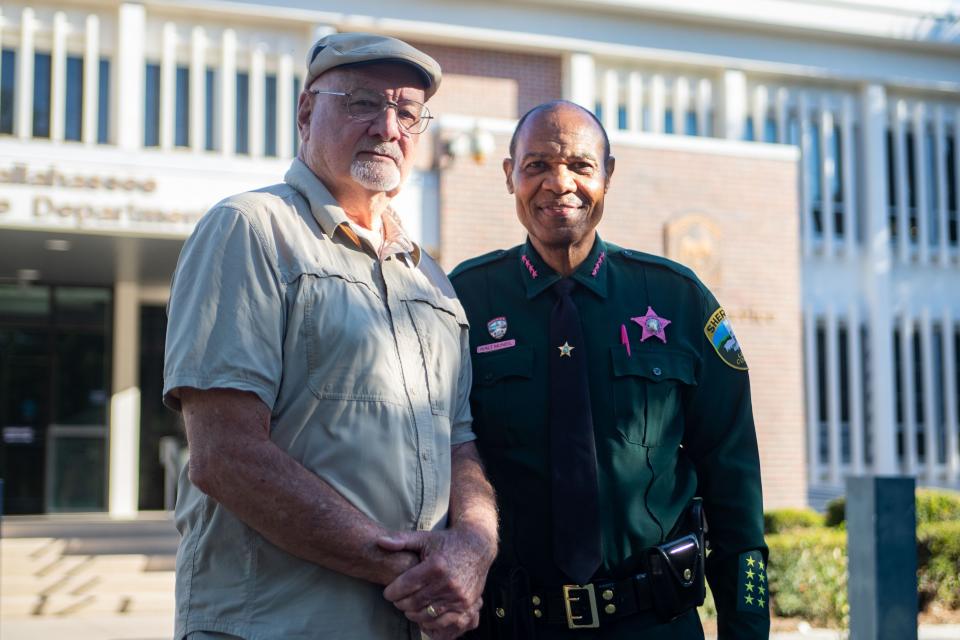
“He was cursing and he had a Black person he was arresting and he was calling him the N-word and all these other slanderous names,” said McNeil.
The arrestee was intoxicated at the time. The officer wasn’t aware that McNeil was within earshot.
“I stuck my head out and his eyes got like plates,” he said. “Later in the shift as we were about to get off, he called me on the radio and asked, ‘can I meet with you?’”
The white officer apologized to McNeil and asked if he was going to report him for his behavior.
“I said, ‘I’m not going to turn you in but man, I’m so disappointed. Is that the way you feel about me and the way you feel about Black people?’” McNeil asked him.
The officer said no and admitted he got carried away. McNeil didn’t see him act like that again.
McNeil held almost every leadership position possible within TPD while under Chief Melvin Tucker, before becoming chief of police from 1997 to 2007.
McNeil later served as secretary of the Florida Department of Juvenile Justice for a year before becoming the secretary of the Florida Department of Corrections, followed by three years as the Chief of Police in Quincy.
In 2016, McNeil was first elected as Leon County Sheriff, and re-elected in 2020, where he has now served for seven years.
He is the first modern-day Black elected sheriff in Leon County.
Preceding him was Phillip DeCoursey who was appointed in 1875 but nine months later died of pneumonia. John Stokes was then appointed to the position and served until 1877.
Today, there are four other Black sheriffs in Florida: Clovis Watson Jr. in Alachua County, Gregory Tony in Broward County, Morris Young in Gadsden County and TK Waters at the Jacksonville Sheriff's Office.
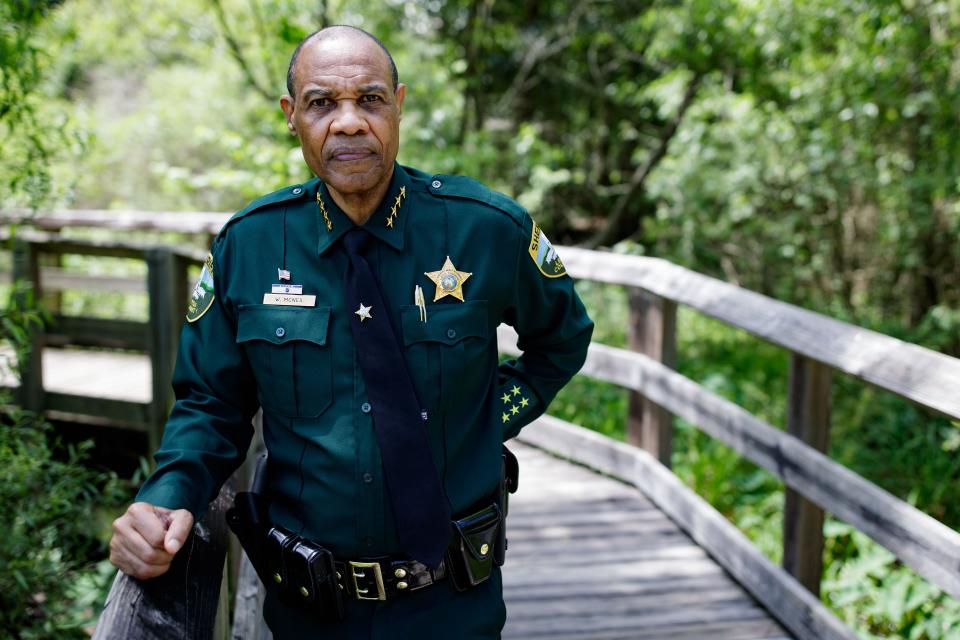
Seeing both sides
Throughout his decades of experience, McNeil has seen firsthand how law enforcement officers fulfill their oath to serve and protect their communities.
“I’d say that somewhere in the neighborhood of 65 to 70 percent of the work that law enforcement does in our communities is in a public service kind of environment,” he stated.
Assisting with hurricane relief efforts, helping drivers stranded on the side of the road and helping those dealing with mental health issues are just a few of the ways local officers have served their neighbors, he says.
Despite this proportion of time spent on less-traditional duties, McNeil says that when law enforcement makes the headlines, it is often for when they use force, particularly deadly force.
The latest national headline involving law enforcement officers come out of Memphis, Tennessee, where five Black Memphis Police Department officers beat 29-year-old Tyre Nichols during a traffic stop.
Nichols succumbed to his injuries a few days later.
The news of the brutal incident spread quickly and demanded consequences for the officers involved.
"My initial thoughts were 'here we go again with an atrocious act of violence, crime committed by persons who are basically criminals in police clothing,'" said McNeil. "Very disappointed that we continue to see persons who have taken an oath to serve and protect the community engaged in acts that are disgraceful to the uniform they wear and the communities that put their trust in those persons."
Within a matter of days, the officers were fired and arrested on charges of murder, and more.
The case involving Nichols in Memphis reignited protests in the city and refueled national attention on cries from May 2020 following the death of George Floyd in Minneapolis, Minnesota.
An uproar in support for defunding the police began during the height of the Black Lives Matter protests in 2020.
Across the nation, thousands of people with handmade signs demanded that money be diverted from law enforcement agencies.
According to defundthepolice.org, which is run by Black Lives Matter Canada, there are alternative methods to police services that “reject the murder and brutalization of Black people.”
The site also states “SWAT teams don’t increase safety. By shifting money away from military-grade weapons and invasive technologies, we can create non-violent solutions to social problems.”
McNeil, while understanding both sides of the funding debate, said he believes some of the message has been misconstrued.
“I think the people that are focused on ‘defund the police’ are consumed with the belief that 10 to 20 percent of our time (enforcing the law) is 100 percent of our time and it’s not,” McNeil said. “The resources you’d be talking about taking away from law enforcement would in fact, adversely impact most communities in our nation.”
Specifically in Leon County, with the drug confiscations made by the sheriff’s office, an estimated $400,000 to $500,000 is given back to the community annually through programs in which the department is engaged.
Tens of thousands of dollars are donated by LCSO to the United Way of the Big Bend, Fellowship of Christian Athletes, Boy Scouts of America, Big Bend Crime Stoppers, as well as several other organizations.
McNeil doesn’t totally dismiss the “defund” movement and is open to the possibility of reallocating funds where the public sees more of a need for spending.
“What you have to do is correct the funding. It’s not about defunding the police,” said McNeil. “But trying to make sure resources in law enforcement agencies are being focused in the areas of serving and protecting from a community protection perspective.”
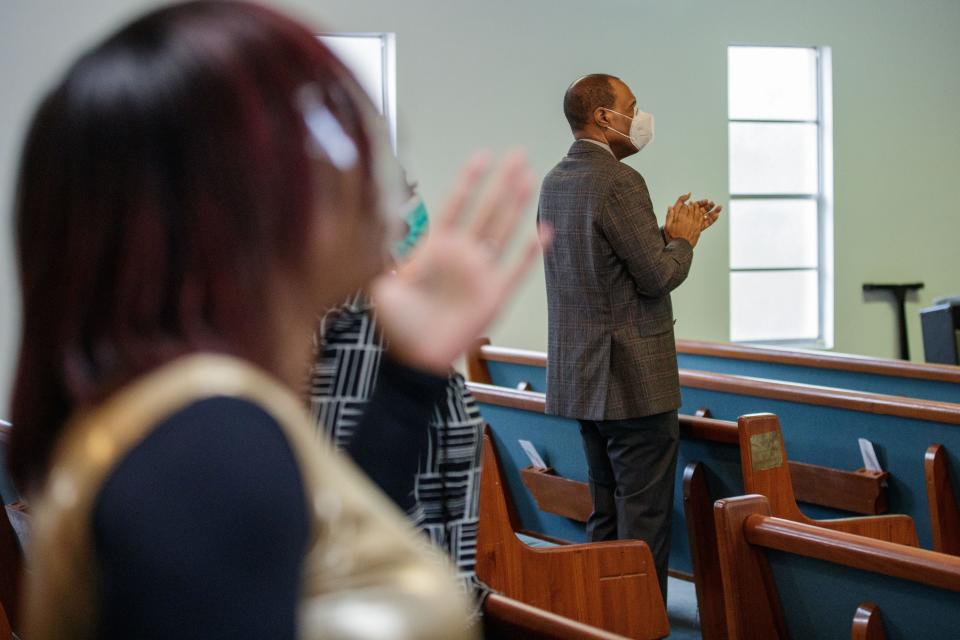
'The reality of the history'
When looking back at the history of America, McNeil sees that the reality is that Black people have historically been oppressed by law enforcement.
“We have to realize the context of how things are occurring in our country as it relates to the number of African Americans being killed in contact with police,” he said. “The message is that let’s make sure as law enforcement, as we respond to situations, to be cognitive of the fact of the history of what’s taken place in our country."
McNeil looks at the Blue Lives Matter viewpoint and hears their concerns but wants everyone to see the full picture and put everything in perspective.
Going back to segregation, it was law enforcement officers who were in charge of maintaining that separation of races.
During the 2020 protests in Florida's capital city, officers arrived on the scene to monitor demonstrations, and carry out arrests if the situation was perceived to be getting out of hand.
“If the police are the citizens and the citizens are the police, then you have to give voice to those persons no matter where they come from, no matter what they look like in your community,” said McNeil.
On the flip side, speaking to the Black Lives Matter supporters, McNeil shares the officer's perspective when interacting with a citizen.
“You can’t project into circumstances the history that has taken place,” he said. “While we recognize that history, we can’t assume that history is replaying itself based on the actions we see with police actions.”
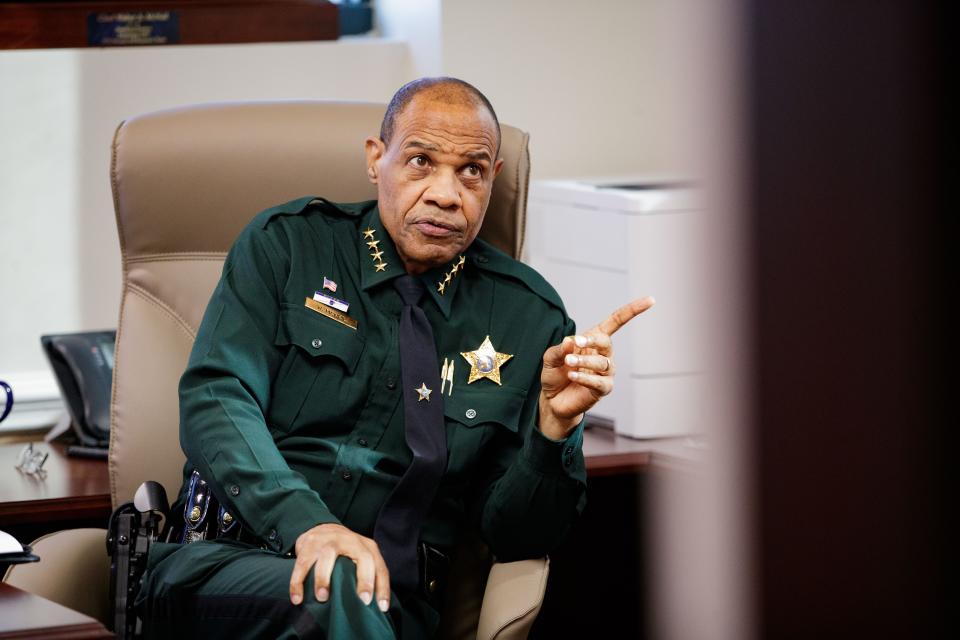
Post-George Floyd reality of policing
Following the death of George Floyd, McNeil felt he needed to act. He wanted to make sure he was doing everything possible to train his team on treating all people with respect.
"As an African-American law enforcement officer, I certainly want to make sure that we root out any instances where people in law enforcement are abusing their authority and power," said McNeil.
This means providing more education about policy and circumstances they may face while on the job.
"Irrespective of color, creed or background, we have to make sure we are the vanguards for freedom in this country and that we are always working to make a more perfect justice system."
Alicia Devine is a staff photojournalist at the Tallahassee Democrat. This story was funded by the Knight Foundation as part of a series on the intricacies of being Black in law enforcement. The four-part series tells the experiences of three officers and one activist in their own words.
Reach photojournalist Alicia Devine at adevine@tallahassee.com or on Twitter @alicia_c_devine. Check out her photos on Instagram @adevinephotography.
This article originally appeared on Tallahassee Democrat: Florida Sheriff Walt McNeil on 'defund the police' efforts, race

